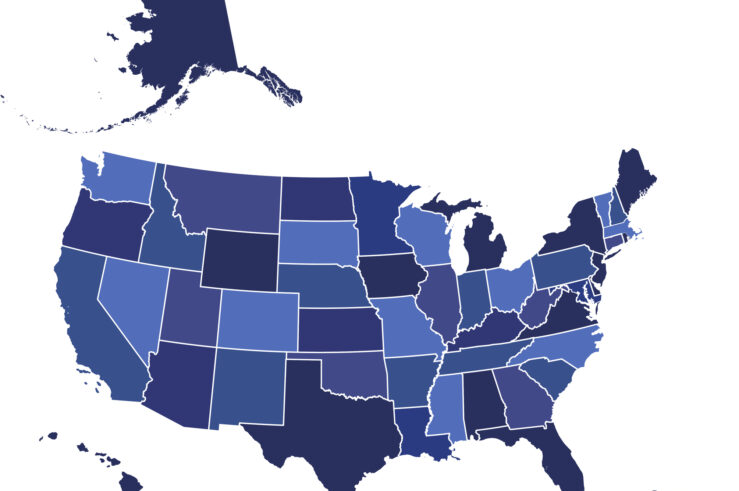Showing results for: “Google shopping manne”
Case closed: Google wins (for now)
The European Commission and its supporters were quick to claim victory following last week’s long-awaited General Court of the European Union ruling in the Google Shopping case. It’s hard to fault them. The judgment is ostensibly an unmitigated win for the Commission, with the court upholding nearly every aspect of its decision. However, the broader ... Case closed: Google wins (for now)
What is the Appropriate Role for State Antitrust Enforcement?
In the U.S. system of dual federal and state sovereigns, a normative analysis reveals principles that could guide state antitrust-enforcement priorities, to promote complementarity in federal and state antitrust policy, and thereby advance consumer welfare. Discussion Positive analysis reveals that state antitrust enforcement is a firmly entrenched feature of American antitrust policy. The U.S. Supreme ... What is the Appropriate Role for State Antitrust Enforcement?
Judge Ginsburg: On the Proposed Digital Markets Unit and the UK’s Competition and Markets Authority
Thank you, Victoria, for the invitation to respond to Mr. Coscelli and his proposal for a legislatively founded Digital Markets Unit. Mr. Coscelli is one of the most talented, successful, and creative heads a competition agency has ever had. In the case of the DMU [ed., Digital Markets Unit], however, I think he has let ... Judge Ginsburg: On the Proposed Digital Markets Unit and the UK’s Competition and Markets Authority
FTC Moves Closer Toward Ex Ante Merger Regulation
The Federal Trade Commission (FTC) has taken another step away from case-specific evaluation of proposed mergers and toward an ex ante regulatory approach in its Oct. 25 “Statement of the Commission on Use of Prior Approval Provisions in Merger Orders.” Though not unexpected, this unfortunate initiative once again manifests the current FTC leadership’s disdain for ... FTC Moves Closer Toward Ex Ante Merger Regulation
5 Thoughts on the Senate’s Proposed Platform Self-Preferencing Ban
A bipartisan group of senators unveiled legislation today that would dramatically curtail the ability of online platforms to “self-preference” their own services—for example, when Apple pre-installs its own Weather or Podcasts apps on the iPhone, giving it an advantage that independent apps don’t have. The measure accompanies a House bill that included similar provisions, with ... 5 Thoughts on the Senate’s Proposed Platform Self-Preferencing Ban
Why There Needs to Be More, not Less, Consolidation in Video Streaming
Slow and inadequate oversight risks the streaming market going the same route as cable—where consumers have little power, few options, and where consolidation and concentration reign supreme. A number of threats to competition are clear, as discussed in this section, including: (1) market power issues surrounding content and (2) the role of platforms in “gatekeeping” ... Why There Needs to Be More, not Less, Consolidation in Video Streaming
Is There Any Market Power in Online Display Advertising?
A lawsuit filed by the State of Texas and nine other states in December 2020 alleges, among other things, that Google has engaged in anticompetitive conduct related to its online display-advertising business. Broadly, the Texas complaint (previously discussed in this TOTM symposium) alleges that Google possesses market power in ad-buying tools and in search, illustrated ... Is There Any Market Power in Online Display Advertising?
Using the Hypothetical Monopolist Test to Define the Relevant Market for Ad Tech
Policymakers’ recent focus on how Big Tech should be treated under antitrust law has been accompanied by claims that companies like Facebook and Google hold dominant positions in various “markets.” Notwithstanding the tendency to conflate whether a firm is large with whether it hold a dominant position, we must first answer the question most of ... Using the Hypothetical Monopolist Test to Define the Relevant Market for Ad Tech
Online Display Advertising: What’s the relevant market?
Digital advertising is the economic backbone of the Internet. It allows websites and apps to monetize their userbase without having to charge them fees, while the emergence of targeted ads allows this to be accomplished affordably and with less wasted time wasted. This advertising is facilitated by intermediaries using the “adtech stack,” through which advertisers ... Online Display Advertising: What’s the relevant market?
Antitrust Dystopia and Antitrust Nostalgia
The dystopian novel is a powerful literary genre. It has given us such masterpieces as Nineteen Eighty-Four, Brave New World, and Fahrenheit 451. Though these novels often shed light on the risks of contemporary society and the zeitgeist of the era in which they were written, they also almost always systematically overshoot the mark (intentionally ... Antitrust Dystopia and Antitrust Nostalgia
Breaking Down the American Choice and Innovation Online Act
The American Choice and Innovation Online Act (previously called the Platform Anti-Monopoly Act), introduced earlier this summer by U.S. Rep. David Cicilline (D-R.I.), would significantly change the nature of digital platforms and, with them, the internet itself. Taken together, the bill’s provisions would turn platforms into passive intermediaries, undermining many of the features that make ... Breaking Down the American Choice and Innovation Online Act
Technology Mergers and the Market for Corporate Control
In recent years, a growing chorus of voices has argued that existing merger rules fail to apprehend competitively significant mergers, either because they fall below existing merger-filing thresholds or because they affect innovation in ways that are purportedly ignored. These fears are particularly acute in the pharmaceutical and tech industries, where several high-profile academic articles ... Technology Mergers and the Market for Corporate Control










